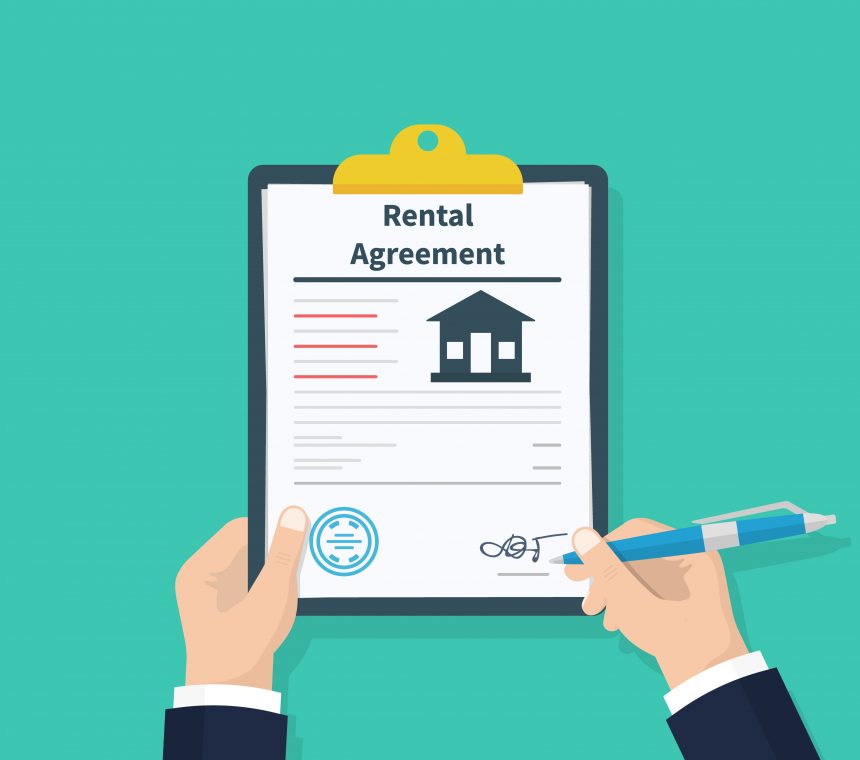Breaking a lease is no small feat. Your landlord can sue you, damage your credit, and affect your ability to find new housing. With a little finesse, you can come to an agreement and stay off the hook.
Step 1: Read the Fine Print
Your first step will always be “check the fine print”. Every lease is different, but keep an eye out for loopholes that allow you to get away scot free.
Early Termination Clause
Some tenant-friendly lease agreements include a clause for early termination. Divorce, unemployment, or health crises may be valid reasons to go. Be careful—the requirements could hold you back. For example, you may have to be over 55 to have a “health crisis”.
Constructive Eviction and Privacy
The government allows a “constructive eviction” when housing is deemed “unlivable”. As with most of these points, the definition of “unlivable” varies by state. Unlivable housing usually forces the tenant out before a court date is even set. Things like lack of heating and water are obvious cases, but mold and damage can also fall under this law.
Document everything.
Carry that mantra with you throughout this process. No judge will take you at your word, so get everything on paper. You can use dates, photos, inspection reports, emails, and conversation summaries as support. All tenants have a right to privacy. The state of Florida calls this “quiet enjoyment and use of the premises” and most states have something similar. You can break your lease if your landlord doesn’t give notice before entering or forces you to accommodate a guest.
Sublet
If you can’t come to an agreement with your landlord and the lease provides for it, subleasing might be your best bet. Go over your lease and see if it allows you to sublet the property. Keep in mind, you will still be the legal tenant. If the subtenant refuses to pay rent, you’ll have to ante up the cost! Mitigate that risk by finding someone you can vouch for.
Step 2: Talk to Your Landlord
Working things out with your landlord is your best bet. Here are a few tools you can keep in your back pocket for negotiating.
Check the Market
Much of your success in negotiations will depend on the market. Will your landlord have a hard time finding a new tenant? If it’s a buyer’s market, they’ll be reluctant to let you leave. A renter’s market could allow them to charge more rent to the tenant who takes your place. Who knows? You may come to an agreement that benefits you both.
Important note: if you leave and the landlord can’t charge the next tenant as much rent, you may have to pay the difference. For example, if you paid $850 and they can’t find a new tenant without charging $750, they can take you to court for the $1,200 difference.
Give up Your Security Deposit
One way to stay in the good graces of your landlord is by handing over your security deposit. A departing tenant can be expensive, so stay out of court by helping them recoup the cost.
Negotiate Long-term Repayment
Finally, you may negotiate a long-term repayment plan. This is especially true if you plan to leave early in your lease term.Try to negotiate a 12 or 18-month rent repayment plan to keep the cost manageable. This outcome is something you should try to avoid, but if you have to make a deal, get it in writing.
Step 3: Go to Court
No one wants to go to court, including your landlord. Always try to negotiate without involving a judge. If you can’t come to an agreement, a courtroom may be inevitable.
Document Everything
Keep a detailed record of every email, letter, and text message between you and your landlord. Documentation is the only thing standing between you and a hefty bill, so make it thorough.
Mitigate Financial Impact
If you lose or don’t show up to court, you could face a money judgment. If possible, pay it right away. Otherwise, the law will decide how you’re going to repay. They can garnish your (or your spouse’s) wages and reach into your bank account to get the money you owe. This is the worst-case scenario, so try to come to an agreement with your landlord in the courtroom.
Final Thoughts
If you want to leave your place early, negotiate with your landlord based on the terms of your lease. Hopefully, you can come to an agreement that will benefit both of you—or at least avoid a painful exit.









